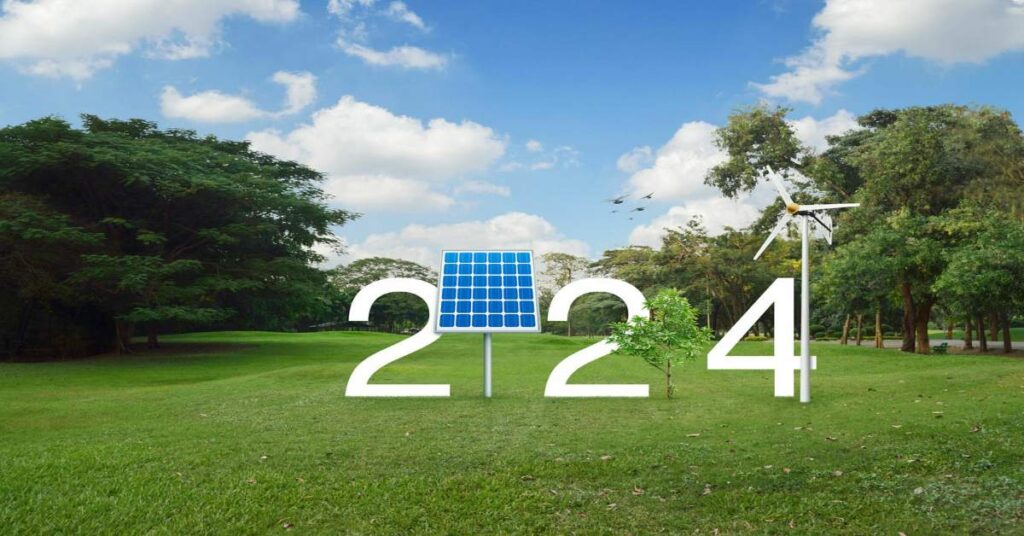In 2024, the imperative to reduce energy costs has become more pressing than ever. High energy consumption not only strains our budgets but also places immense stress on the environment. As we look ahead, this article delves into a variety of strategies aimed at significantly reducing energy costs in 2024, fostering both financial savings and a more sustainable future.
Embracing Renewable Energy Sources
Transitioning to renewable energy sources remains one of the most effective means of slashing energy costs in 2024. Thanks to ongoing technological advancements, these sustainable energy options have become increasingly affordable and accessible for residential and commercial consumers alike.
Solar panels from Custom Solar & Leisure, for instance, have witnessed remarkable improvements in efficiency and cost-effectiveness, empowering homeowners to generate their electricity and possibly even sell any surplus energy back to the grid. Moreover, government incentives and tax credits are further incentivizing the adoption of renewable energy, making it an attractive option for many.
Energy-Efficient Home and Building Upgrades
Investing in energy-efficient upgrades for homes and commercial buildings represents a substantial stride toward reducing energy consumption. Such upgrades may encompass the installation of energy-efficient windows, enhanced insulation, and the modernization of HVAC systems. Smart thermostats and lighting can be integrated to optimize energy utilization and curtail costs. These investments yield dividends not only through reduced energy bills but also by augmenting property values and contributing to a more environmentally responsible future.
Energy-Efficient Appliances and Electronics
2024 marks an era when the market is saturated with energy-efficient appliances and electronics. Replacing older, power-hungry appliances with Energy Star-rated models can translate into significant energy savings. Furthermore, adopting practices like unplugging devices when they’re not in use and using power strips to combat vampire energy consumption can further trim electricity costs.
Smart Grids and Energy Management Systems
The widespread deployment of smart grids and energy management systems in urban areas and communities promises more efficient energy distribution and consumption. Smart grids empower utilities to monitor and control energy flow with greater precision, while consumers can access real-time data to make informed choices about their energy consumption. By shifting energy usage to off-peak hours, consumers can take advantage of lower rates and, in turn, reduce their energy bills.
Behavioral Changes and Energy Conservation
Even the simplest and easiest lifestyle changes can make a notable contribution to energy cost reduction. Encouraging employees to turn off lights and equipment when not in use, practicing water and heating conservation, and adjusting thermostat settings can collectively make a significant difference. Education can help instill a culture of energy efficiency in both workplaces and homes, fostering long-term savings.
Energy Storage Solutions
Energy storage technologies, including lithium-ion batteries, are becoming increasingly affordable and practical for residential and commercial applications. These systems can store any excess energy generated by renewables during off-peak hours and release it when needed, reducing the reliance on the grid during peak times and ultimately lowering energy costs.
Industrial Energy Efficiency
While much of the focus is often on residential and commercial sectors, industrial energy efficiency plays a critical role in overall energy cost reduction. In 2024, industries are encouraged to invest in energy-efficient machinery and processes. This not only lowers energy bills but also reduces carbon emissions and enhances competitiveness in an increasingly environmentally conscious marketplace.
Electrification of Transportation
The year 2024 is poised to witness a surge in the electrification of transportation. Electric vehicles (EVs) are becoming more practical, with increased charging infrastructure. Transitioning to EVs can reduce fuel costs significantly. Furthermore, the adoption of electric buses and public transportation can lead to substantial energy savings in cities and communities.
Related Articles:
Creative Uses for Decorative Landscaping Stones in Your Garden
Conclusion
In 2024, the quest to reduce energy costs isn’t merely a financial decision but a paramount step toward creating a sustainable future. Embracing renewable energy, upgrading to energy-efficient technologies, and adopting smart energy management practices are fundamental strategies for reducing energy expenses.
When coupled with government incentives, industrial efficiency measures, transportation electrification, sustainable construction, and community-based solutions, these approaches have the potential to transform our energy landscape, resulting in substantial cost savings and a brighter, greener future. It’s incumbent upon us all to take action and make 2024 a year characterized by energy efficiency, environmental stewardship, and financial prudence.
